Qantas’ new zero-waste reduction initiative has been named ‘The Bowerbird Project’ after the Australian bird that reuses small plastic items.
The first-ever commercial flight to produce no landfill waste took to the skies on May 8th, marking the start of Qantas’ plan to cut 100 million single-use plastics by end-2020 and eliminate 75 per cent of the airline’s waste by end-2021.
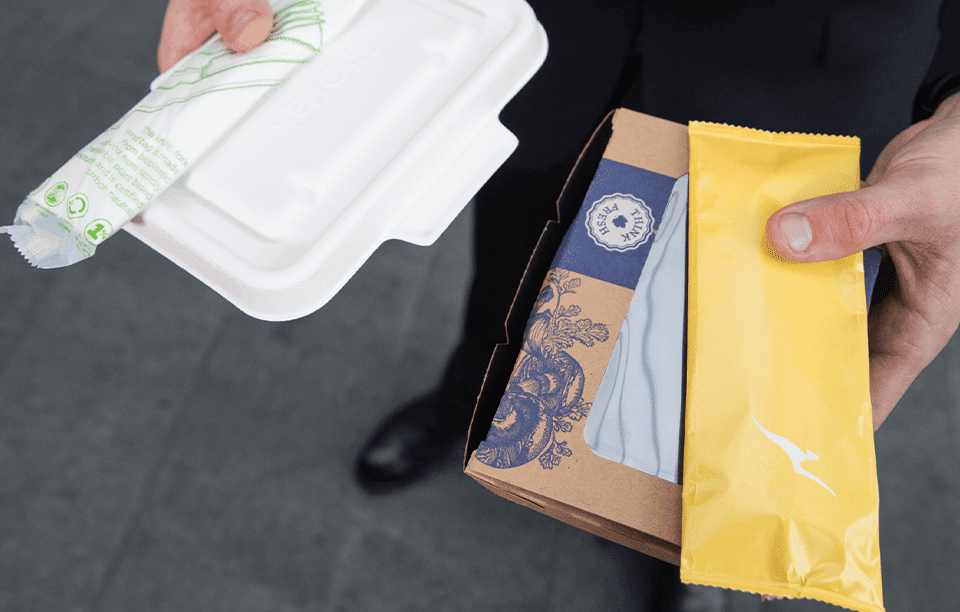
What’s the challenge?
No other human activity pushes individual emission levels as fast and as high as air travel. Alongside that stark fact, the airline industry has been copping bad press for years for their needless over-use of single-use plastics and lack of recycling practices.
Qantas currently produces the equivalent of “80 fully-laden Boeing 747 jumbos” per year in waste across its Qantas and Jetstar operations.
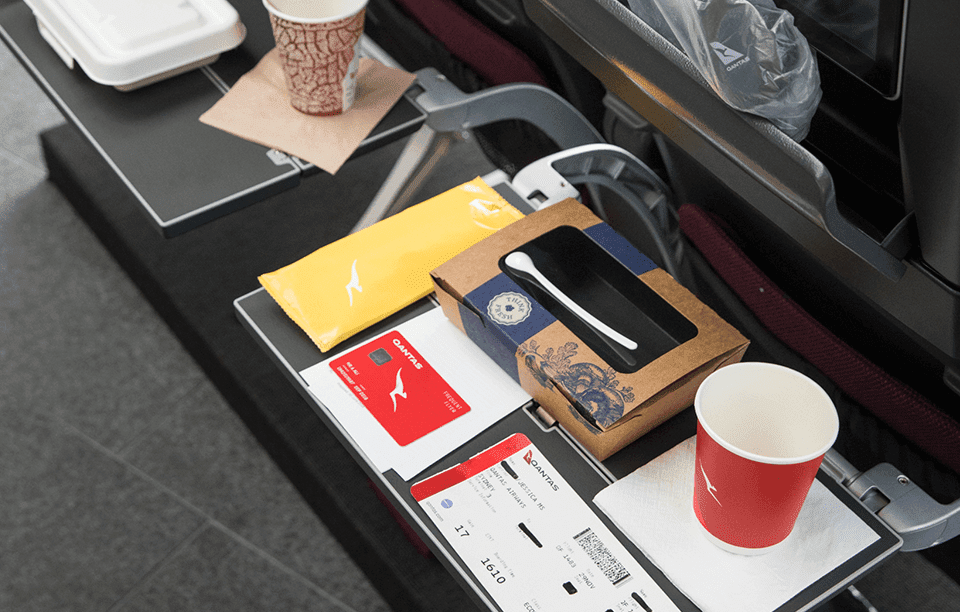
What’s the solution?
Qantas flew their first zero-waste sector, with flight QF739 flying from Sydney to Adelaide and staffed by cabin crew from the Qantas ‘Green Team’, who disposed of all inflight products onboard via compost, reuse or recycling.
Alternative products used during the flight included meal containers made from sugar cane and cutlery made from crop starch, all of which is fully compostable.
The zero-waste flight was 100 per cent carbon offset. Qantas operates the largest carbon offset scheme in the aviation industry, with a passenger offsetting their flight every minute.
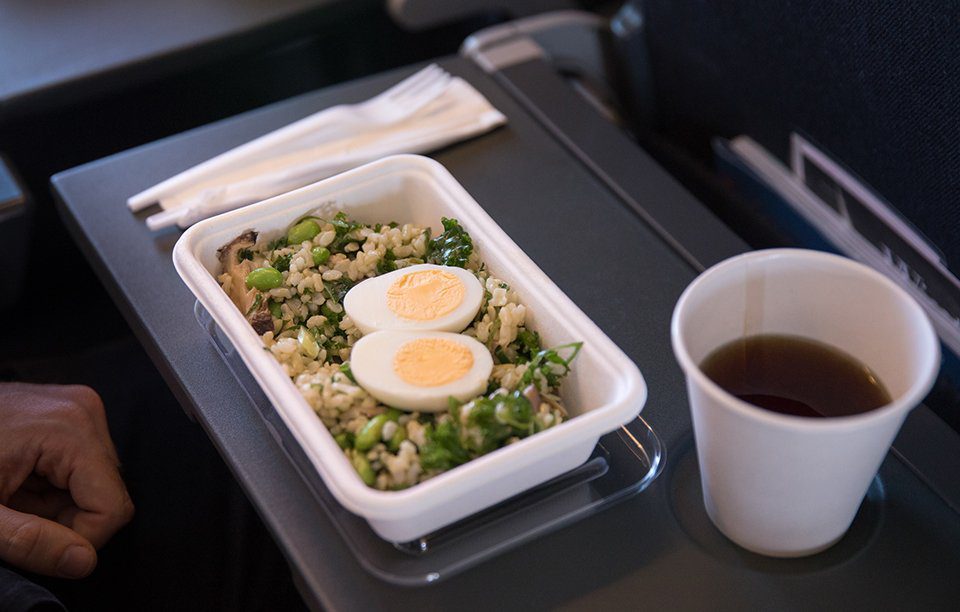
Speaking at the flight’s departure, Qantas Domestic CEO Andrew David said the trial flight was an important milestone for the national carrier’s plan to slash waste.
“In the process of carrying over 50 million people every year, Qantas and Jetstar currently produce an amount of waste equivalent to 80 fully-laden Boeing 747 jumbo jets,” Mr David said.
“We want to give customers the same level of service they currently enjoy, but without the amount of waste that comes with it.”
Mr David said this flight would typically produce 34 kilograms of waste – with the Sydney to Adelaide route producing 150 tonnes of waste annually.
“This flight is about testing our products, refining the waste process and getting feedback from our customers,” he said.
About 1000 single-use plastic items were substituted with sustainable alternatives or removed altogether from the flight, including individually-packaged servings of milk and Vegemite.
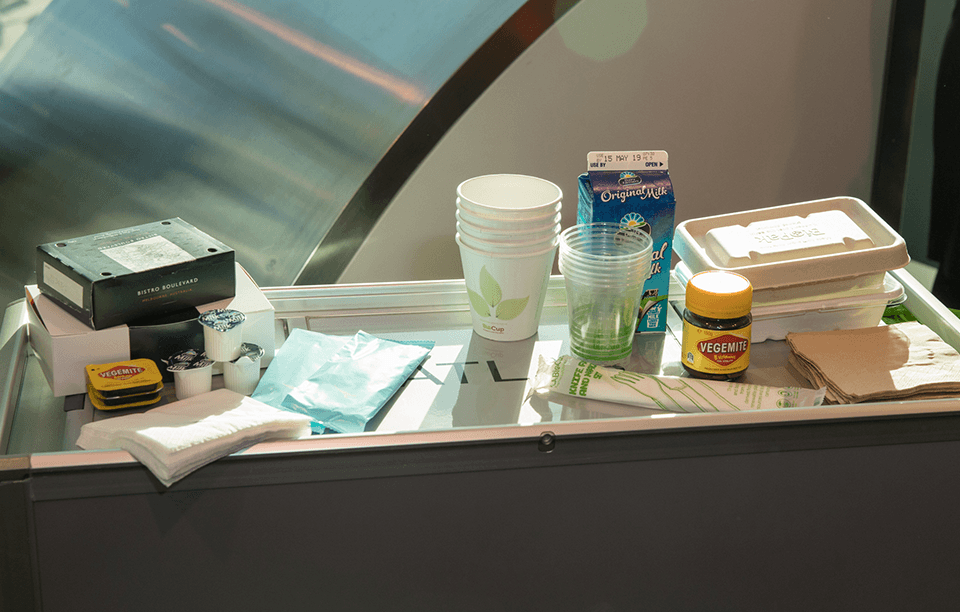
At the end of the meal service, Qantas cabin crew collected the items left over for reuse, recycling or composting in multiple waste streams.
Customers used digital boarding passes and electronic bag tags where possible, with staff on hand to make sure any paper passes and tags were disposed of sustainably.
The Qantas lounges at Sydney Airport’s domestic terminal also went ‘green’ for the flight, with multiple waste streams in use.
From mid-2019, customers will earn 10 Qantas Points for every dollar spent offsetting their travel from Australia, which is the highest standard earn rate of any frequent flyer initiative.
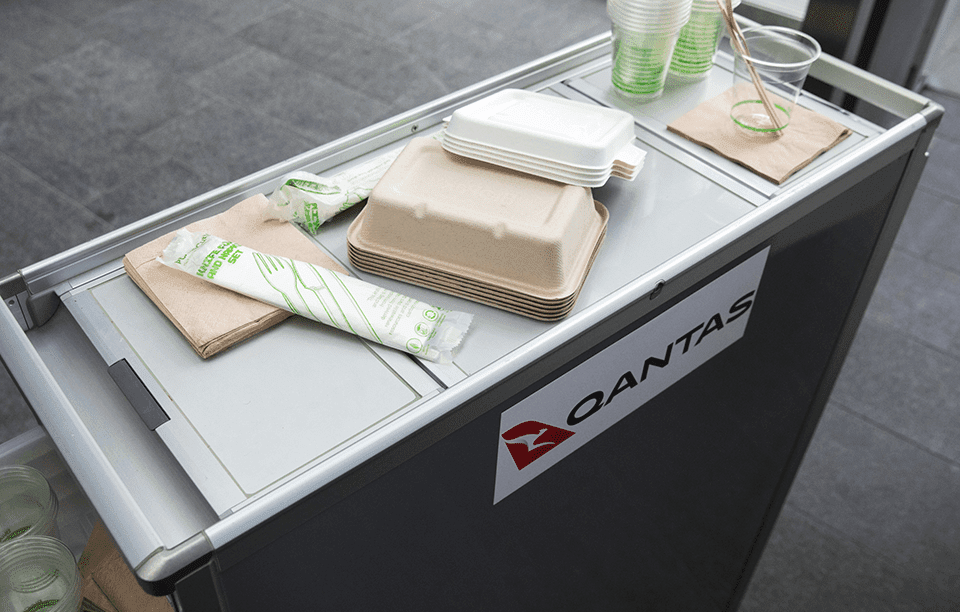
What will the positive impact be?
All airlines are legally required to dispose of some materials permanently, such as quarantined food from international flights. Qantas says they will work with suppliers and government to reduce the volume of this waste.
In its effort to remove 100 million single-use plastic items every year by the end of 2020, Qantas and Jetstar will replace 45 million plastic cups, 30 million cutlery sets, 21 million coffee cups and 4 million headrest covers with sustainable alternatives.
Etihad recently flew the region’s first single-use plastic-free flight from Abu Dhabi to Brisbane, and just last year, Qantas operated the first biofuel flight between Australia and the United States using biofuel processed from mustard seed.
Find out more at www.qantas/carbonoffsetting.com.au
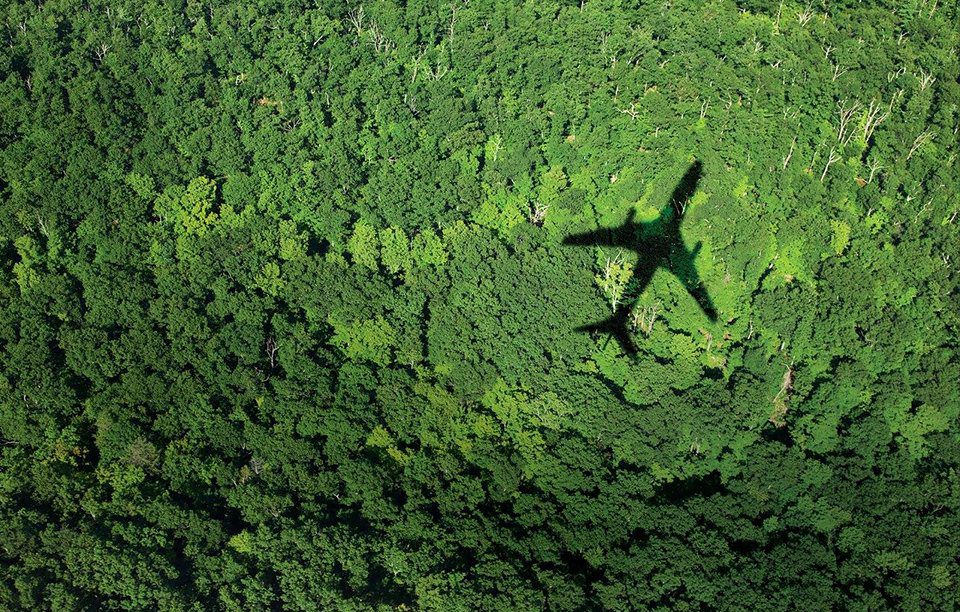
How can you travel to change the world?
Congratulations! By reading this post and taking some of these insights on board, you’ve already made a difference.
Now you can easily create your impact by sharing your new-found knowledge with other friends who you think would also be interested.
Ultimately, responsible travel comes down to common sense – stay curious, keep yourself up-to-date with the challenges at hand and make yourself accountable for your actions on your travels.